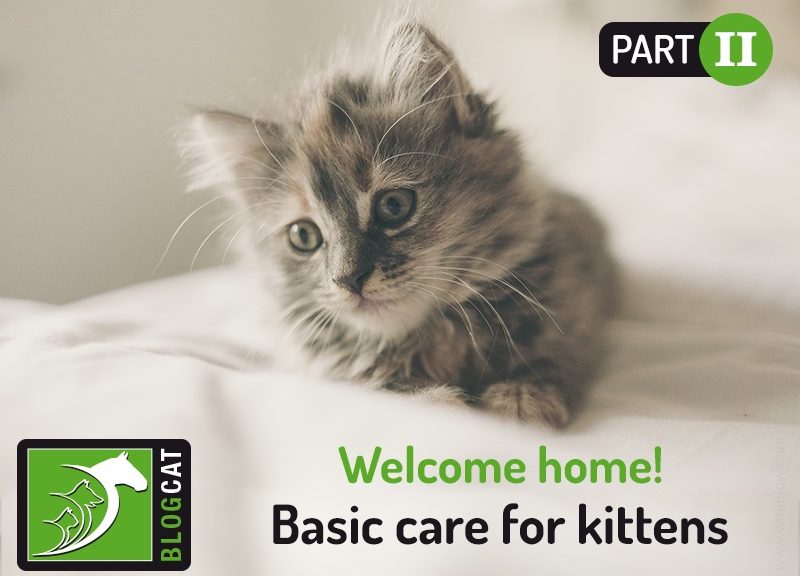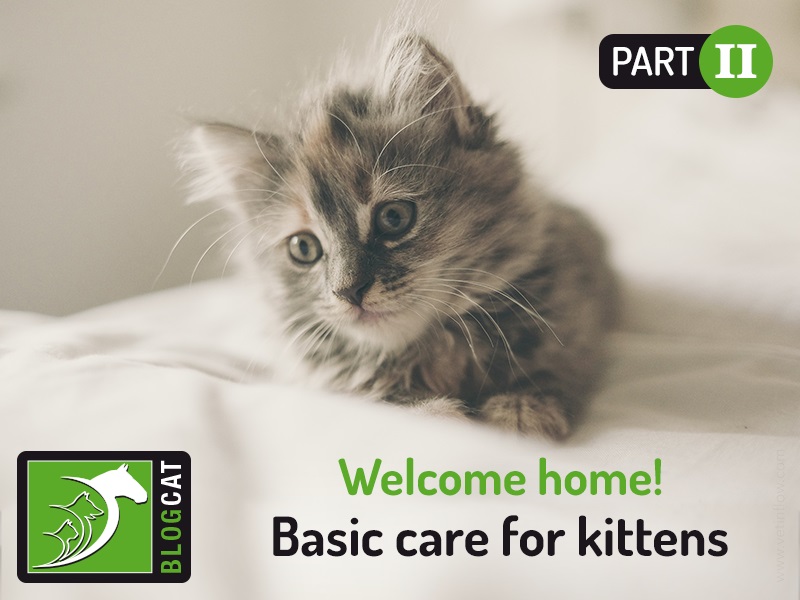Last blog post we covered everything you can do to make sure your kittens feel welcome, comfortable, secure and loved in their new home. Today we’ll be focusing on other needs that should be addressed and that will become a part of your everyday life.
APPROPRIATE PLAY
Playing and exploring are essential activities for mental and physical development. From stalking, pouncing, striking, grabbing and climbing kittens learn and practice behaviours that would be vital for their survival if they were living in the wild.
Initially, kittens will engage in social play with their mum and siblings. However, by the time they come to our homes, usually after 8 weeks of age, they’ll be more interested in prey-oriented play. This type of play should always be directed at objects (toys) and it will help them develop their balance and eye-paw coordination.
Please do not engage in playing activities using your hands and feet as predatory behaviours will be inadvertently directed at the owner and this can cause aggressive behaviour towards people in the future.
Make sure the toys you provide are appropriate: kittens usually love toys that will involve some interaction from your end, such as fishing rods but are also easily entertained with a simple crumpled paper ball. To keep things exciting and fun you should alternate your kittens’ toys and provide places to hide, like a cardboard box.
It is also advisable to supervise your kittens while they’re playing. Kittens, just like babies, love to explore with their mouths so it is very important that tiny objects they may find interesting such as strings and hair ties are not left in their reach as they can cause gastrointestinal obstructions if ingested.
TRAINING
If you’ve never had a kitten, this might come as a surprise for you, but litter training a kitten takes zero effort. For most kittens, you just need to show them where the litter tray is and they will use it out of instinct.
You may also be wondering ‘Why would I want to train my cat?’.
If we were talking about dogs, we would immediately associate training with commands like ‘sit’ or ‘stay’. But when it comes to cats, even though they are just as capable (although probably not as willing!) of learning and performing commands as dogs, when we say training what we usually mean is other important things like how do I get my cat to not scratch the furniture or how do I keep my cat off the kitchen surfaces.
The first thing we need to acknowledge is that for cats to be happy and healthy, they need to be able to display their natural behaviour. Clawing and scratching are instinctive for cats and so is climbing to access higher grounds. If you don’t want your kittens to claw on your sofa, what you need to do is provide an alternative structure where they can redirect this behaviour.
If you want to teach your kittens to do something start rewarding the behaviours that you want them to develop by offering praise or small treats, for example, and remember that punishing can make them anxious, fearful and consequently aggressive.
HYGIENE
Proper hygiene, as well as adequate nutrition, are essential for good health. A standard hygienic routine should include grooming to keep your kittens’ coat and skin healthy, eye/ear cleaning, nail trimming if your kitten is an indoor cat, and dental hygiene at regular intervals. If you get your kittens used to being handled at a young age, they can learn to enjoy it, which will also make your visits to the vet easier.
HEALTH
Since you have the opportunity to start fresh, make sure you make preventative care a priority for your kittens. Take your kitten to the vet as soon as possible for a health check and take your notebook with you as your vet will be giving you lots of information and advise you on many important issues, such as microchip identification, worming and flea/tick treatments, vaccination, spaying/neutering, insurance options, nutrition, and they will be able to clarify any questions that you may have.
Regular visits to the vet are essential to make sure your kitten grows up healthy and protected!
Now that you have all this information, we hope you enjoy your new adventure!
<a href=”https://www.thepetprofessionals.co.uk/courses/feline-courses.php”>Would you like to know more about cats? Check our Feline Courses:
<div class=”col-xs-6 col-sm-2 col-md-2 paddingLeft0 “><img style=”max-width: 100px;” src=”https://www.thepetprofessionals.co.uk/images/courses-icons-feline.jpg” width=”100%” /></div>
<div class=”col-xs-6 col-sm-10 col-md-10 paddingLeft0 “>
<h2>Feline courses</h2>
</div>
</a>

